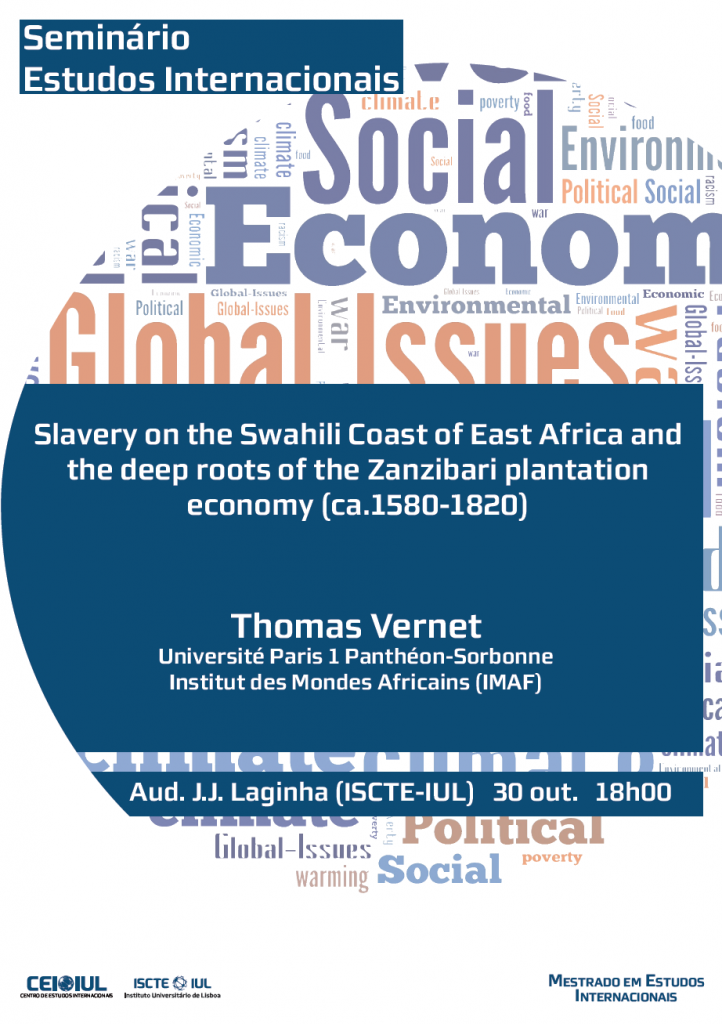
Seminário de Estudos Internacionais
Slavery on the Swahili Coast of East Africa and the deep roots of the Zanzibari plantation economy (ca.1580-1820)
Thomas Vernet
(Université Paris 1 Panthéon-Sorbonne – Institut des Mondes Africains (IMAF))
30 outubro, 18h00 | Auditório JJ Laginha, ISCTE-IUL
Entrada Livre
This communication aims to reconsider the issue of slavery in the Swahili communities settled on the coast of East Africa (north of the captaincy of Mozambique) during the early modern era. During the nineteenth century a flourishing plantation economy developed on the Swahili Coast. These transformations are usually linked to the introduction of the clove tree in Zanzibar, the Omani slaving ideology and the growth of the Indian Ocean economy. Yet slavery in the Swahili world before that era remains poorly studied. This paper, mainly based on extensive research in the Portuguese and French archives, will show that the roots of the Zanzibari plantation economy are also to be found in the local use of slaves and other dependent people. In particular the accumulation of slaves was not only the outcome of slave trading and production growth, but also of the social function of dependents. Tackling these issues, this paper will also briefly discuss the role of the Portuguese in the slave trade and slavery in the region.
